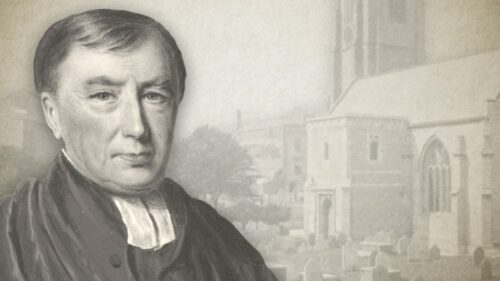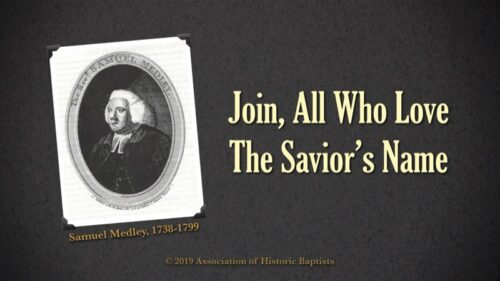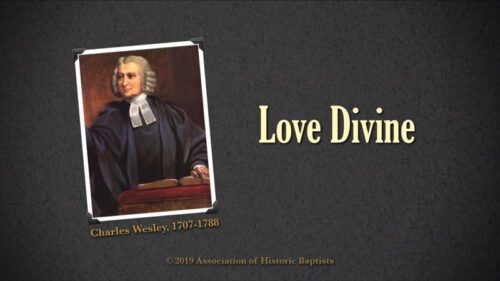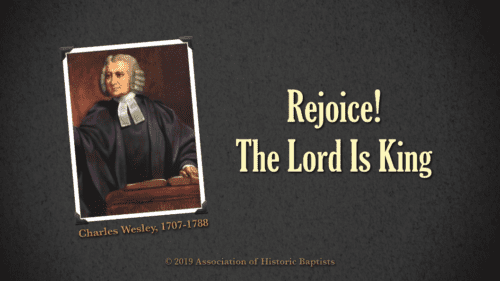-
June 3—Morning Devotion
"In his favour is life."—Psalm 30:5 Oh for grace to keep this always in view, for then, thou dear Lord, I should never consider my dead frames, or dead feelings, since I well-know that thou ever bearest favour and good-will towards thy people. For if thy providences frown, or seem to frown, do I not know that behind that aspect thy countenance is the same, always gracious, always favourable, and that thou art invariably pursuing the everlasting happiness of thy people? Let it please thee, my Lord, to grant me this morning such views of thy favour, that I may henceforth trace it in every thing. Was it not this favour that first opened a source of salvation? Was it not this favour that brought…
-
1 Corinthians: Chapter 3, Verse 2
“I have fed you with milk, etc.]” It is usual with the Jews to compare the law to milk, and they say, that “as milk strengthens and nourishes an infant, so the law strengthens and nourishes the soul;” but the apostle does not here mean hrwt lç blj, “the milk of the law”, as they call it, but the Gospel; comparable to milk, for its purity and wholesomeness, for the nourishing virtue there is in it, and because easy of digestion; for he designs by it, the more plain and easy doctrines of the Gospel, such as babes in Christ were capable of understanding and receiving: and not with meat; the more solid doctrines of the Gospel, and sublime mysteries of grace; the wisdom of…
-
1 Corinthians: Chapter 3, Verse 1
“And I, brethren, could not speak unto you, etc.]” Though the apostle was a spiritual man himself, had spiritual gifts, even the extraordinary gifts of the Spirit, could judge all things, had the mind of Christ, and was able to speak the wisdom of God in a mystery, yet could not speak it to them, “as unto spiritual;” Not but that they had the Spirit of God in them, and a work of grace upon them; for they were, as the apostle afterwards says, the temple of God, and the Spirit of God dwelt in them; they were washed, sanctified, and justified, in the name of the Lord Jesus, and by the Spirit of our God; but had not that spiritual discerning, or judgment in…
-
1 Corinthians: Chapter 3, Introduction
In this chapter the apostle returns to the charge of schisms and contentions upon the Corinthians, which were the occasion of the epistle; and reproves them for their divisions, which were about their ministers; and gives them their just and due character, and who, though they were useful and commendable in their places, were not to be gloried in; and especially it was a great piece of weakness and folly, to set up one against another, when they had an equal interest in them all. Having, in the latter part of the preceding chapter, made mention of the spiritual man, the apostle tells the Corinthians, to whom he writes, that he could not address them as spiritual, but as carnal; and not as perfect men,…
-
Come, Thou Fount
Romans 7:21-25: "I find then a law, that, when I would do good, evil is present with me. For I delight in the law of God after the inward man: but I see another law in my members, warring against the law of my mind, and bringing me into captivity to the law of sin which is in my members. O wretched man that I am! who shall deliver me from the body of this death? I thank God through Jesus Christ our Lord. So then with the mind I myself serve the law of God; but with the flesh the law of sin."
-
1 Corinthians: Chapter 2, Verse 16
“For who hath known the mind of the Lord, etc.]” The deep counsels of his heart, the scheme of salvation by Jesus Christ, as drawn in his eternal mind, the sense of the Spirit of God in the writings of the Old Testament, the things of the Spirit of God, or the doctrines of grace more clearly revealed under the Gospel dispensation; not any natural man, by the light of truth and strength of reason, has known any of these things. The apostle either cites or alludes to (Isaiah 40:13) “that he may instruct him?” Not the Lord, who needs no instruction from any, nor can any teach and instruct him, nor would any be so bold and insolent as to attempt it nor does…








